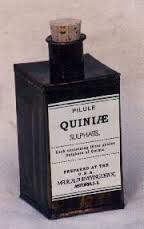When we think of hearing loss we generally associate it with aging or long term exposure  to loud noises. It is certainly true that these are common triggers. The aging process often causes changes to the inner ear which can contribute to hearing loss, and long term exposure to loud noises irreversibly damages the tiny hair cells in the inner ear, leading to permanent hearing loss. The story doesn’t end there however. In fact, there are a number of conditions that can lead to hearing loss and one of the most overlooked causes is ototoxic medications.
to loud noises. It is certainly true that these are common triggers. The aging process often causes changes to the inner ear which can contribute to hearing loss, and long term exposure to loud noises irreversibly damages the tiny hair cells in the inner ear, leading to permanent hearing loss. The story doesn’t end there however. In fact, there are a number of conditions that can lead to hearing loss and one of the most overlooked causes is ototoxic medications.
Medicine is supposed to be good for you and it is, generally, but sometimes the side effects of medications can outweigh the benefits. There are currently over 200 medications that have ototoxic side effects, meaning that they have a toxic effect on the ear or its nerve supply. For an extensive list of ototoxic medications, you can check out this Ototoxic Dug Packet from the American Tinnitus Association.
Aspirin and its derivatives, some of the most common over-the-counter medications, can cause tinnitus and eventual hearing loss if taken in large quantities. Another particular source of ototoxicity is from quinine. Quinine is one of the oldest drugs on the market and has been used to treat malaria as far back as 1633. In the United States, quinine was widely used as a treatment for nighttime leg cramps and was readily available over the counter. The Food and Drug Administration (FDA) ended up banning it from over the counter sales in 1994 because of its serious side effects, one of which happens to be tinnitus and or hearing loss. Eventually, quinine medications were banned completely except for the treatment of certain types of malaria.
Today, you can still find quinine in tonic water and many doctors recommend that patients drink tonic water to relieve nighttime leg cramps. Since the levels are pretty small, only about 20mg per 6 ounces compared to the 324mg found in quinine capsules, they feel that it is relatively safe to take. However, some individuals still experience side effects, even from the comparatively small amount. There have been reports of tinnitus, rash, itching and blurred vision from tonic water drinkers.
What we put in our bodies affect us on so many levels. When we are talking about hearing loss and ear health, it is recommended to avoid any sort of ototoxic medications, quinine, arsenic, mercury, tin, lead and manganese which have all been conclusively linked to hearing loss or ear damage. There are some foods and minerals that have a positive impact on hearing health though, and when added to the diet can help to prevent or delay hearing loss. If you are looking to introduce some hearing healthy foods into your diet you can try the following:
- Magnesium found in bananas, broccoli and artichokes
- Anti-oxidants like folic acid found in asparagus, spinach, eggs and nuts
- Omega 3 fats and Vitamin D found in tuna and salmon
- Vitamin C and Vitamin E found in fruits and vegetables
- Zinc from oysters and dark chocolate
Hearing health ultimately starts with protecting our ears from injury and from loud noises by wearing hearing protection whenever necessary. To take it a step further however, adding hearing healthy foods into our diet and staying away from ototoxic medications and minerals found in everyday life can help to prevent or delay hearing loss for many years to come.

